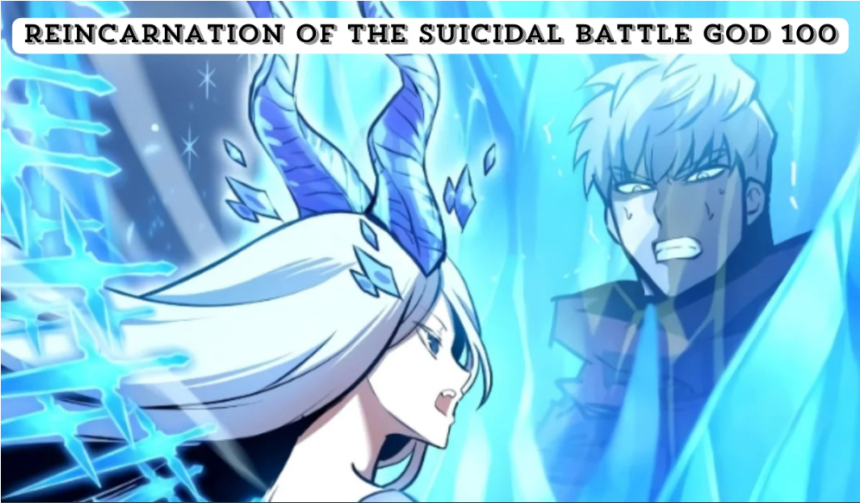Introduction to the concept of reincarnation in different cultures
Have you ever pondered upon the enigmatic concept of reincarnation? Across diverse cultures and beliefs, the idea that one’s soul can transcend time and space to be reborn is both mystifying and captivating. Today, we delve into a tale that intertwines themes of reincarnation, mental fortitude, and redemption – the story of the Suicidal Battle God 100. Join us as we explore this gripping narrative filled with symbolism and profound lessons waiting to be unraveled.
Overview of the
Reincarnation is a concept that has intrigued cultures worldwide for centuries. It delves into the idea of a soul being reborn into a new body after death, carrying with it experiences and lessons from past lives. The story of the reincarnation of the suicidal battle god 100 takes this notion to an intriguing level.
In this tale, we witness the transformation of a once troubled warrior who decides to end his own life on the battlefield. However, instead of reaching eternal rest, he is granted another chance at life through reincarnation. This time around, he must navigate his inner demons and confront his past actions in order to find redemption and peace.
The themes and symbolism in this story are profound – exploring topics such as resilience, self-forgiveness, and personal growth. Through its narrative, readers are invited to reflect on their own struggles and triumphs in life.
The overview sets the stage for a compelling journey into the depths of human nature and spiritual evolution.
The story of the
In the tale of the reincarnation of the Suicidal Battle God 100 we are introduce to a deity burdened by his past actions. This god seeks redemption through a new life, facing inner turmoil and external challenges along the way. The story unravels with gripping intensity, exploring themes of guilt, transformation, and resilience.
As we delve deeper into the narrative, we witness the protagonist’s journey towards self-discovery and acceptance. Through intricate plot twists and character development, readers are drawn into a world where fate intertwines with free will. The dynamic interplay between destiny and choice adds layers of complexity to this riveting saga.
Symbolism infuses every chapter, from symbolic representations of mental health struggles to metaphors for spiritual rebirth. The vivid imagery paints a poignant picture of human emotions and experiences transcending time and space. Through its rich tapestry of symbols and motifs, the story resonates on multiple levels with audiences worldwide.
The reincarnation theme serves as a powerful metaphor for personal growth and overcoming adversity. It reminds us that change is constant, evolution is inevitable, yet redemption is always within reach. As we follow the Suicidal Battle God 100 on his quest for renewal, we are inspire to confront our own demons with courage and compassion.
Themes and symbolism in the story
The story of the reincarnation of the suicidal battle god 100 is rich with themes and symbolism that add depth to the narrative. One prominent theme is redemption, as the protagonist seeks to overcome his past actions through a new chance at life. The journey of self-discovery and growth is another key theme, highlighting the importance of introspection and personal development.
Symbolism plays a significant role in conveying deeper meanings throughout the story. The sword wielded by the battle god represents strength and power, while also serving as a metaphor for inner turmoil and conflict. The recurring motif of fire symbolizes transformation and purification, suggesting that even in darkness, there is potential for renewal.
Through these themes and symbols, readers are encourage to reflect on their own struggles and find hope in the possibility of change. The story serves as a reminder that no matter how dire circumstances may seem, there is always an opportunity for rebirth and healing.
Analysis of how the concept of reincarnation is portrayed in the story
The concept of reincarnation in the story “Reincarnation of the Suicidal Battle God 100” is depicted as a cycle of rebirth and redemption. The protagonist, a battle god burdened by his past actions, seeks to find peace through multiple lives. Each reincarnation offers a chance for growth and healing, highlighting the idea that one’s journey towards self-forgiveness is ongoing.
Through intricate storytelling, the author weaves themes of transformation and resilience into the narrative. This portrayal serves as a reminder that despite struggles and setbacks, there is always an opportunity for renewal and second chances.
The symbolism of reincarnation mirrors life’s complexities and uncertainties. It underscores the interconnectedness of our choices and their lasting impact on our spiritual evolution.
By exploring how reincarnation shapes the character’s path to enlightenment, readers are encourage to reflect on their own journey towards self-discovery and acceptance.
The impact and lessons learned from this story
The impact of the story of the reincarnation of the suicidal battle god 100 is profound. It delves into themes of redemption, resilience, and the cyclical nature of life. Through the protagonist’s journey, readers are reminded that even in our darkest moments, there is always hope for renewal and transformation.
Lessons learned from this story resonate with readers on a personal level. It encourages reflection on one’s own struggles and challenges, highlighting the importance of perseverance and self-discovery. The narrative serves as a poignant reminder that mental health issues can affect anyone, regardless of external strength or power.
By exploring the concept of reincarnation within a mythological context, this story offers a unique perspective on how individuals can confront their inner demons and emerge stronger than before. It inspires readers to embrace change and find solace in the possibility of rebirth and growth.
Discussion on how this story reflects societal views on mental health and suicide
The story of the reincarnation of the suicidal battle god 100 delves into complex themes surrounding mental health and suicide. Through its narrative, it offers insights into how society grapples with these sensitive issues.
The character’s struggles and eventual transformation shed light on the importance of addressing mental health challenges openly and compassionately in our communities. It prompts reflection on how we perceive those battling internal demons.
Moreover, by exploring the concept of reincarnation in this context, the story invites us to ponder the cyclical nature of life’s challenges and opportunities for growth. It encourages a deeper understanding of resilience and inner strength amidst adversity.
This tale serves as a poignant reminder of the need for empathy, support, and destigmatization when it comes to mental health discussions within our societal framework.
Conclusion
The story of the reincarnation of the suicidal battle god 100 is a powerful tale that delves into themes of redemption, self-discovery, and mental health. Through its intricate weaving of mythology and personal struggles, it offers readers a chance to reflect on their own inner battles and find hope in the possibility of transformation and growth.
This narrative not only entertains but also educates on the importance of seeking help during times of crisis and understanding that there is always a way out, even when things seem bleak. It serves as a reminder that everyone deserves a second chance at life and should never give up on themselves or others.
This story highlights how society’s views on mental health and suicide are evolving, encouraging more open discussions and empathy towards those struggling with these issues. By embracing themes of reincarnation and personal growth, this narrative challenges us to confront our fears and insecurities head-on while fostering compassion for ourselves and those around us.
As we journey through life’s trials and tribulations, may we all find strength in the resilience depicted in the reincarnation of the suicidal battle god 100 story – knowing that no matter how dark our path may seem, there is always light at the end waiting to guide us towards healing and renewal.







